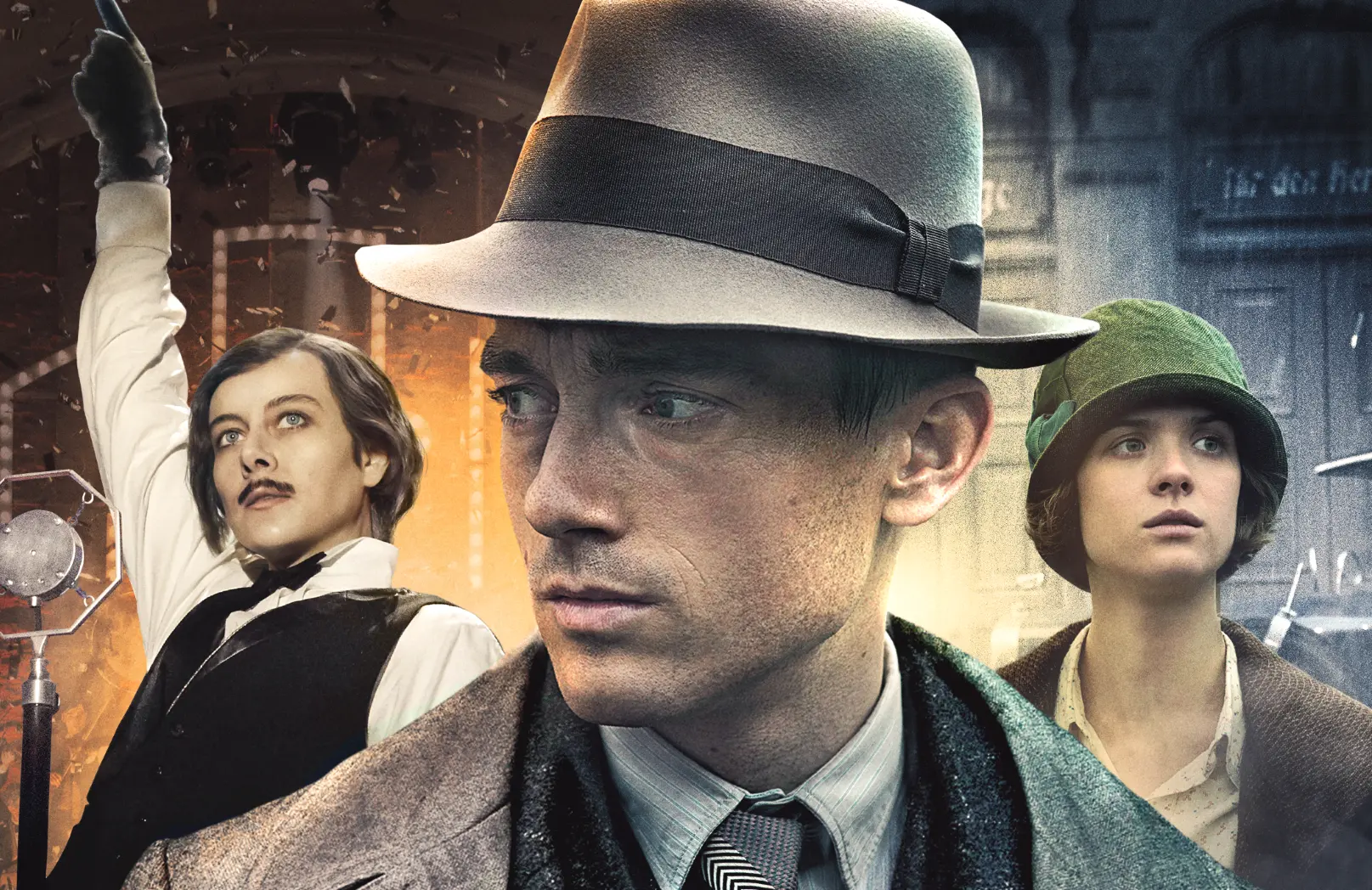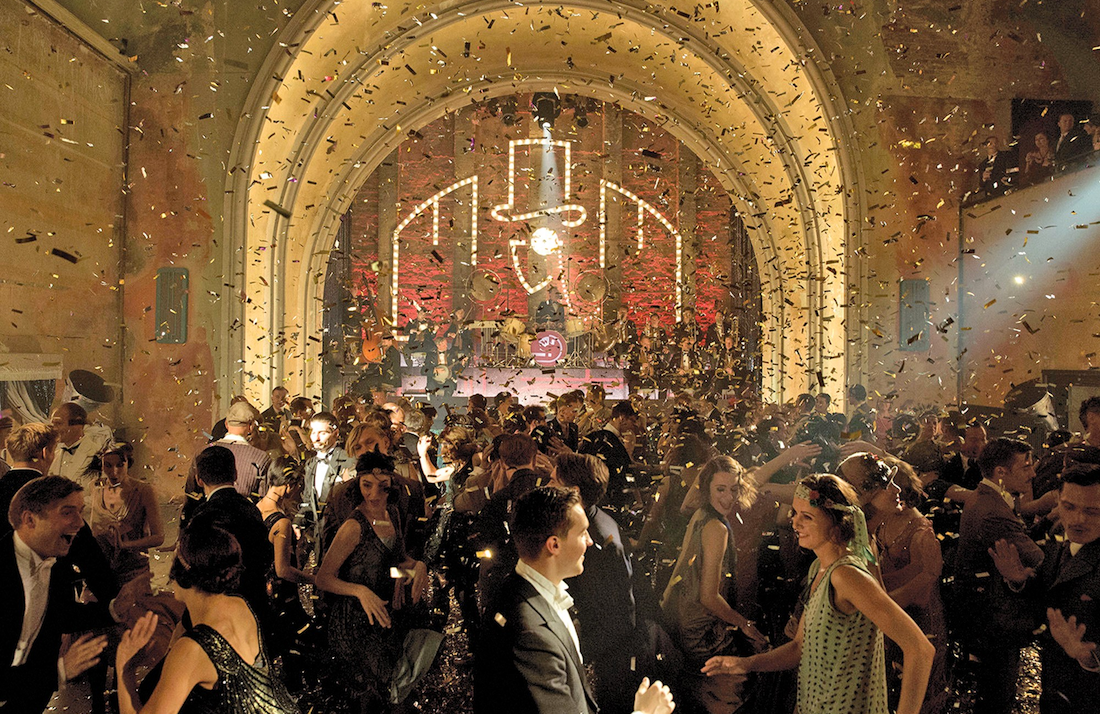In Babylon Berlin, Freedom Runs Wild in 1929, With Nary a Nazi in Sight
-
 Severija Janusauskaite, Volker Bruth and Liv Lisa Fries star in Babylon Berlin (Photo: Netflix)
Severija Janusauskaite, Volker Bruth and Liv Lisa Fries star in Babylon Berlin (Photo: Netflix)Babylon Berlin
Season 1
Watch on: NetflixAn exhibit opened at the German Historical Museum in Berlin earlier this year entitled “Weimar: The Essence and Value of Democracy.” It takes a fresh look at the cultural legacy of the Weimar Republic, the short-lived era of democratic rule after World War I, when Germans not only experienced political openness as never before, but pushed the edges of artistic expression and sexual freedom.
That last point was brought home for me as I peered down into a glass museum case to see a beautifully preserved, six-inch steel Japanese dildo. Posters overhead listed the accomplishments of gay and lesbian activists, family-planning advocates, and sexual boundary-pushers. Clearly the organizers of this exhibit want visitors to rethink the view — most forcefully advanced by the 1972 film Cabaret — that sex was something people indulged in to help take their mind off the Nazis. Berlin’s kinkiness was but one expression of the Weimar spirit that was transforming German political and cultural life before anyone had ever heard of Hitler.
And it’s that spirit which pervades the first season of Babylon Berlin, the epic German TV drama dubbed into smooth American English. This sprawling, escapist crime-noir extravaganza presents 1929 Berlin as a place where messy democracy rules the day, and anything-goes libertinism fuels the night. Based on the detective novels of Volker Kutscher, Babylon Berlin shows a city grappling with immense social problems, yet bursting with a creative energy that is still palpable when visiting Berlin today.
The show centers on a handful of morally fraught, yet oddly appealing characters, and a series of seemingly unconnected crimes that are slowly revealed to be part of a wider conspiracy. Detective Gereon Rath (Volker Bruth), who is mysterious and taciturn in a Don Draper kind of way, has been sent to Berlin on secret assignment. Rath is assigned to the vice squad, where he reports to Chief Inspector Wolter (Peter Kurth), a thoroughly debauched cop who is sometimes capable of ethical judgment and human kindness.

Rath becomes friendly with a secretary in the homicide division named Lotte Ritter (the stunning Liv Lisa Fries), who dreams of escaping a life of poverty and working on cases as a detective. At night, Lotte slips away to a cabaret club called the Moka Efti, where she gets paid to make men’s dreams come true.
Over eight spellbinding episodes, this unlikely duo will infiltrate an underworld of Russian agents, Trotskyites, German corporationists, and right-wing nationalists whose goal, as one official solemnly tells Rath, “is nothing less than the destruction of our democracy.” Yet even as growing instability is paving the way for Hitler’s sudden rise to power, Berlin goes about its work and play as though Weimar will never end.
Babylon Berlin's $50 million budget was shouldered by two broadcasters who took a huge risk, hoping that procedural-loving Germans were ready for a show with 157 characters and a vast, intricate narrative that doesn’t start making sense until the fourth hour. There are lavish musical numbers, scenes with thousands of extras, and incredible views of Berlin in 1929. It’s a love letter to a city that was — and once more is — one of the world’s most dynamic cultural centers.
The show’s writing-directing team of Tom Tykwer, Achim von Borries, and Hendrik Handloegten were determined to let nothing get in the way of making world-class television for a Peak TV audience. And yet, if there’s a secret ingredient that makes Babylon Berlin more than just a period-piece confection (e.g., Boardwalk Empire), it’s the history. The writers presume their work will be viewed by people who are wondering, as I was, how Germany’s bold experiment in freedom could be snuffed out seemingly overnight.

There are ominous signs sprinkled throughout Babylon Berlin: the long lines of destitute people on the streets, the left-wing and right-wing extremist groups demanding a say in German politics, and the culture of manly violence that is the great war’s pervasive legacy.
I was impressed by the reenactment of the horrific Mayday police riot of 1929, in which 33 were killed and hundreds wounded. We see the state scramble to cover up this overreaction to a Communist labor march, and share Rath’s disgust at the police’s tactics. But when he tries to visit the victims and pay respects, he’s immediately outed as a cop and must flee for his safety. The spiral into mass, state-sanctioned violence has begun, and the first brown shirts haven’t even shown up. Indeed, no one in Season 1 so much as utters Der Führer’s name.
The cliffhanger that concludes Babylon Berlin’s first season is the kind that makes you want to jump right into Season 2, but save those eight episodes for next weekend. Let this dazzling show linger with you a while — as well as its message about the fragility of free institutions.
Thanks to reader Barbara Cluever for suggesting Babylon Berlin. If you’d like to nominate a show for review in The Overlooked, drop me a line.
People are talking about Babylon Berlin in our forums. Join the conversation.
Aaron Barnhart has written about television since 1994, including 15 years as TV critic for the Kansas City Star.
TOPICS: Babylon Berlin, Netflix